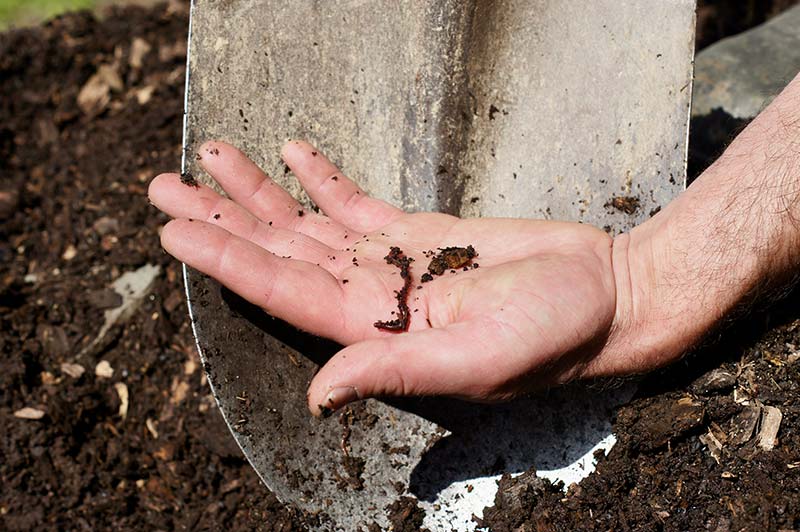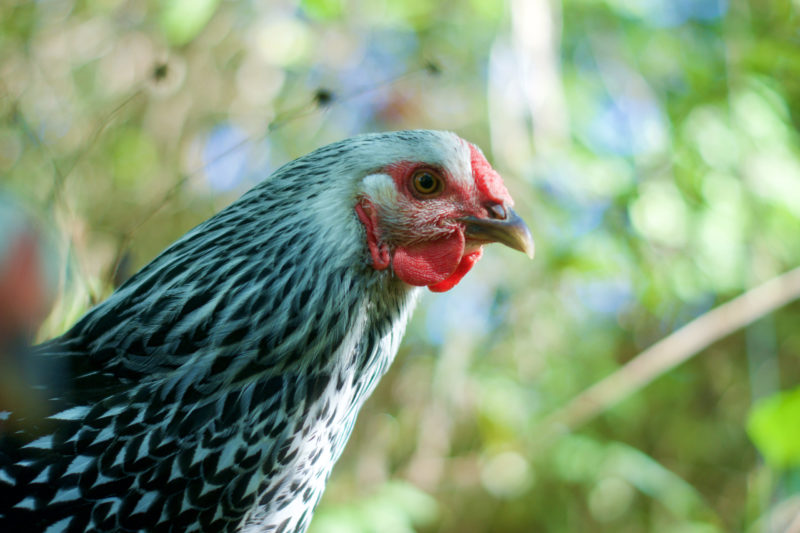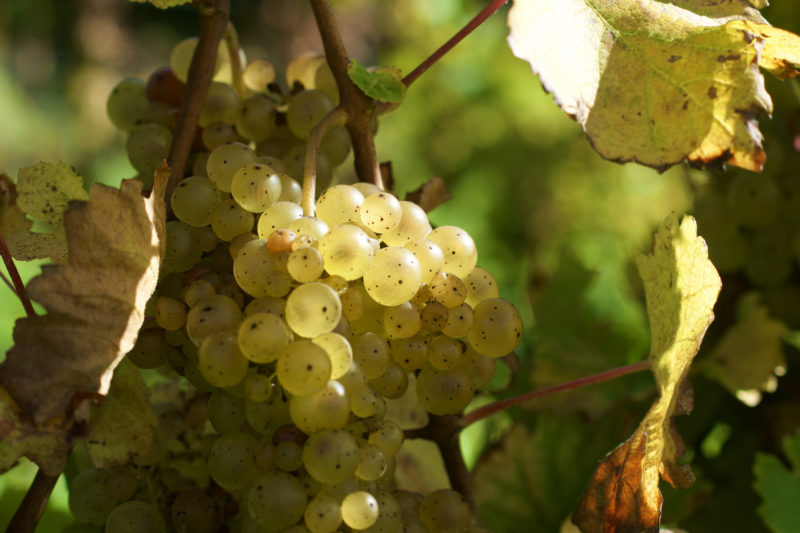Our Vineyard
Silver Thread Vineyard was established in the early 1980’s on the site of an abandoned Catawba vineyard. Today, it consists of ten acres of premium wine grapes, including Riesling, Chardonnay, Gewurztraminer, Pinot Noir, Cabernet Franc, Cabernet Sauvignon and Merlot. The soil is shallow silt loam over shale rock. In 2023, we became one of the first vineyards to be Certified Sustainable by New York Sustainable Winegrowing.
Vineyard Philosophy
At Silver Thread, we follow a holistic, regenerative approach to farming called biointensive viticulture. Healthy grapes can’t grow in a sterile environment—they need a healthy ecosystem. From the roots to the stems, leaves, and berries, we provide our vines with a population of helpful microbes to assist in fending off pathogens.
Is our approach organic or biodynamic? Unfortunately, we can’t easily label ourselves. We’re using elements of organic and biodynamic viticulture as appropriate for our region. We call our approach biointensive: production of outstanding quality fruit by combining scientific knowledge with a regenerative, biological approach. It is healthy for humans, the larger ecosystem and our vines.
Silver Thread was planted over 30 years ago and its original vines are still thriving. If we take good care, it will continue to bear fruit for a long time to come
Soil Health

The cornerstone of our vineyard management strategy is healthy, living soil. We amend our soil with homemade organic compost: a mixture of pomace (composted grape skins leftover from winemaking), wood chips and chicken manure, to recycle nutrients that are depleted during the growing season. Our flock of free-range chickens deposit natural fertilizer around the vineyard and gently cultivate the soil with their foraging. We add locally-produced biochar as a natural soil enhancement when planting new vines. We consciously minimize tractor traffic through the vineyard to avoid compacting the soil. Radishes and other large-rooted annuals are planted between rows to break up the soil and prevent compaction.
Under our vineyard rows, we established a low-growing cover crop that improves nutrient and water availability to the vines and encourages a healthy microbial population. As a result, we are fully organic and no-spray for weed management.
Insect Management
We strive to be 100% organic for insect control. Our main insect pest is grape berry moth, and thankfully there is an organic, biological spray available to control this pest. The spray is highly targeted (meaning it only affects the berry moth pest). It is a biological spray—a bacteria that grape berry moth larva eat that interferes with development. Our flock of free-range vineyard chickens also reduces insect pressure by eating harmful insects in the vineyard.

Fungal Disease Management

Fungal disease is our main pest in the Finger Lakes. Several diseases are always present in the region and a comprehensive approach is needed.
Our first line of defense is to strengthen the vines to reduce their susceptibility to disease. This is achieved by fostering healthy soil and populating the vineyard canopy with beneficial native microbes.
Secondly, we use cultural practices such as leaf pulling and canopy management to improve air flow around the ripening grapes. This helps them stay dry and reduces fungal infection. Also, netting is used to protect varieties that are attractive to birds and mammals. By protecting the grape skins from being punctured, the nets reduce entry points for fungal disease.
If, despite our prevention efforts, fungal infection is detected, our first preference is a biological spray. This method inserts a “good microorganism” to consume or out-compete a “bad microorganism.” If a biological method is ineffective or unavailable, our next choice is an organic chemical spray such as sulfur or copper (used sparingly). Finally, if absolutely needed to preserve the crop, we use non-organic chemical sprays. We pledge to use highly-targeted sprays whenever possible, to reduce impact on the environment, the lake and our employees and visitors. Many next-generation fungicides are both highly-targeted and biodegradable.
Consider the human health analogy. People try to keep healthy by eating well, exercising and other habits. But occasionally, everyone gets sick. A mild illness might call for extra vitamin C and rest, while more serious conditions require prescription medication. We care for the vines in a similar way, only introducing chemicals (i.e. medication) as a last resort to save the crop.


